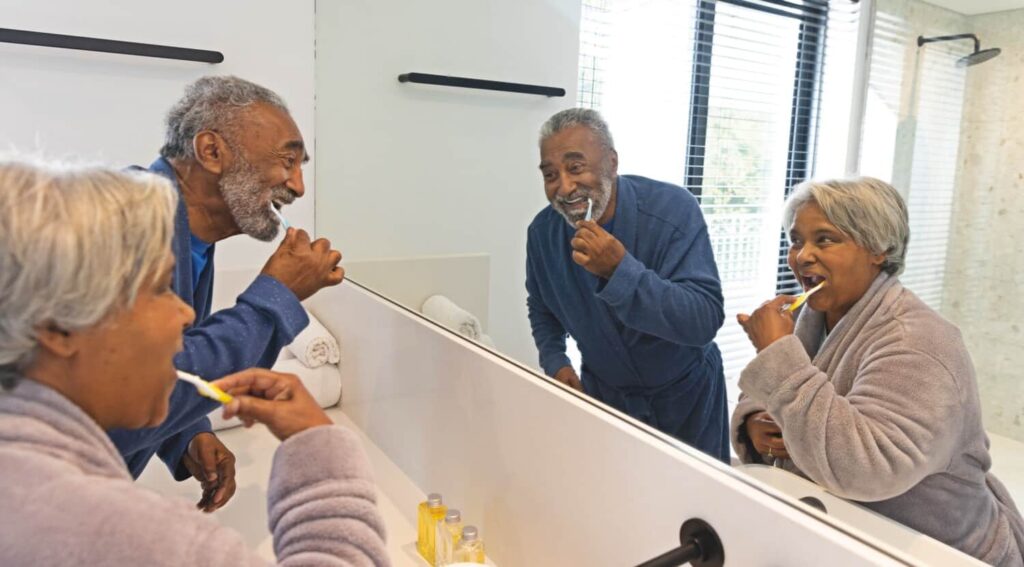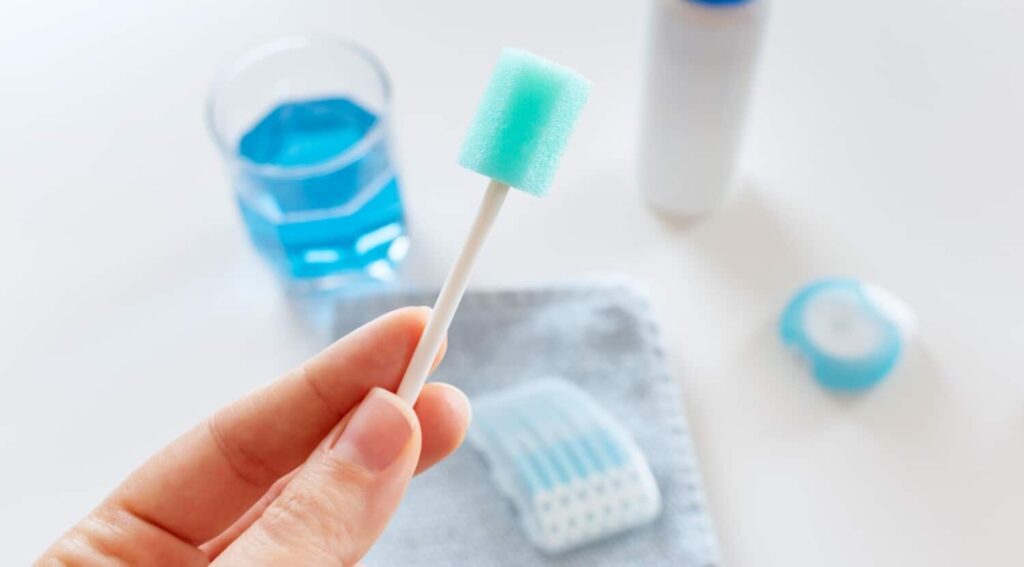Oral health directly affects overall health and quality of life. It is important for everyone, especially for seniors and the elderly. As we age, our bodies naturally change, and our oral health is no exception. Including chronic illnesses such as diabetes or heart disease, we are more likely to develop gum disease, tooth loss, and other oral health problems which can put us at risk in our twilight years.
Why is oral hygiene important for seniors and the elderly?
Below are the 10 reasons why oral hygiene is important for the elderly:
It prevents tooth loss. Gum disease is the leading cause of tooth loss in adults. Seniors are more likely to develop gum disease than younger adults. Good oral hygiene can help to prevent gum disease and retain teeth for life.
It reduces the risk of infections. Bacteria from the mouth can travel to other parts of the body, leading to infections. Seniors are more likely to develop serious infections, such as pneumonia and heart disease. Good oral hygiene can help to reduce the risk of these infections.
It improves overall health. Good oral health is linked to overall health. The elderly who have good oral health are more likely to have a healthy heart, lungs, and digestive system. They are also less likely to develop Alzheimer’s disease and other chronic diseases.
Increases lifespan. Studies have shown that people with good oral health tend to live longer than those with poor oral health. Good oral hygiene can help seniors to live longer, healthier lives.
It improves appetite and nutrition. A healthy mouth makes it easier to chew and swallow food. This is important for seniors, who may have difficulty eating due to changes in their senses of taste and smell. Good oral hygiene can help seniors to maintain a healthy weight and get the nutrients they need.
It reduces pain. Gum disease and tooth loss can cause pain. This pain can make it difficult to eat, sleep, and enjoy life. Good oral hygiene can help to reduce pain and improve quality of life.
It increases self-confidence. A healthy smile can boost self-confidence. The elderly may be self-conscious about their teeth, especially if they have lost teeth or have gum disease. Good oral hygiene can help seniors to feel more confident and comfortable.
It saves money. Treatment for gum disease and tooth loss can be expensive. Good oral hygiene can help to prevent these problems, saving money in the long run.
Makes life easier. Seniors who have good oral health are more likely to be able to do things for themselves, such as eating, dressing, and bathing. This can help them to maintain their independence and quality of life.
It can be a matter of dignity. Everyone deserves to have a healthy mouth and smile. Good oral hygiene can help seniors to maintain their dignity and self-respect.
What are the health risks of poor oral hygiene?
Tooth decay. Plaque caused by bacteria harms the tooth enamel and causes cavities. One of the reasons older adults are at increased risk of cavities is dry mouth. Saliva helps protect the teeth and reduces bacteria, but dry mouth is a side effect of certain drugs commonly taken by seniors, such as medications for depression, asthma, and high blood pressure.
Gum disease. Two in three seniors 65 and older have gum disease. Severe gum disease can lead to sore, bleeding gums, chewing problems, and tooth loss, among other health problems.
Tooth loss is common in older adults. Tooth loss can affect nutrition because seniors with missing teeth may not be able to eat or enjoy fresh food options, like fruits and vegetables.
Heart disease. Inflammation caused by gum disease increases the risk of heart disease. Gum disease can also make certain heart conditions worse and may be associated with a higher risk of stroke.
Diabetes. People with poor blood sugar control are at higher risk for dental problems, such as inflammation and gum disease. This is because too much glucose (sugar) in saliva helps bacteria grow in the mouth.
Oral cancer.Older adults are at higher risk for oral cancers. The risk is higher for people who chew tobacco or smoke cigarettes, pipes, or cigars. Regular dentist appointments can help detect problems early.
How to Improve Oral Hygiene for Seniors?
There are a few things the aged and elderly can do to improve their oral care:
- Brush twice a day for two minutes each time. Use a soft-bristled toothbrush and fluoride toothpaste.
- Floss once a day. Floss helps to remove plaque and bacteria from between the teeth.
- See a dentist regularly. Everyone, no matter their age should see a dentist for regular checkups and cleanings.
- Make sure to get enough fluoride. Fluoride helps to strengthen teeth and prevent cavities.
- Eat a healthy diet. A healthy diet helps to keep teeth and gums healthy.
- Quit smoking. Smoking can damage teeth and gums.
- Use a water flosser. Water flossers can be a good option for seniors who have difficulty flossing with traditional floss.
- Ask for help. If you have difficulty brushing or flossing, ask a family member, friend, or caregiver for help.
Conclusion
It is very critical to ensure that the elderly have good oral hygiene. Poor dental health and hygiene could be signs your loved one needs help with activities of daily living. Having a chat with them to see where you can help will not only brighten their outlook but also improve their appetite, nutrition, and self-confidence.
Want to book an appointment?
Book online by clicking here. Call our friendly team on 3390 6100 or email us.










0 Responses
A healthy mouth also makes it easier for you to eat well and enjoy food. thanks for sharing this post.